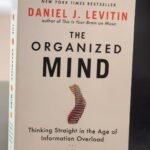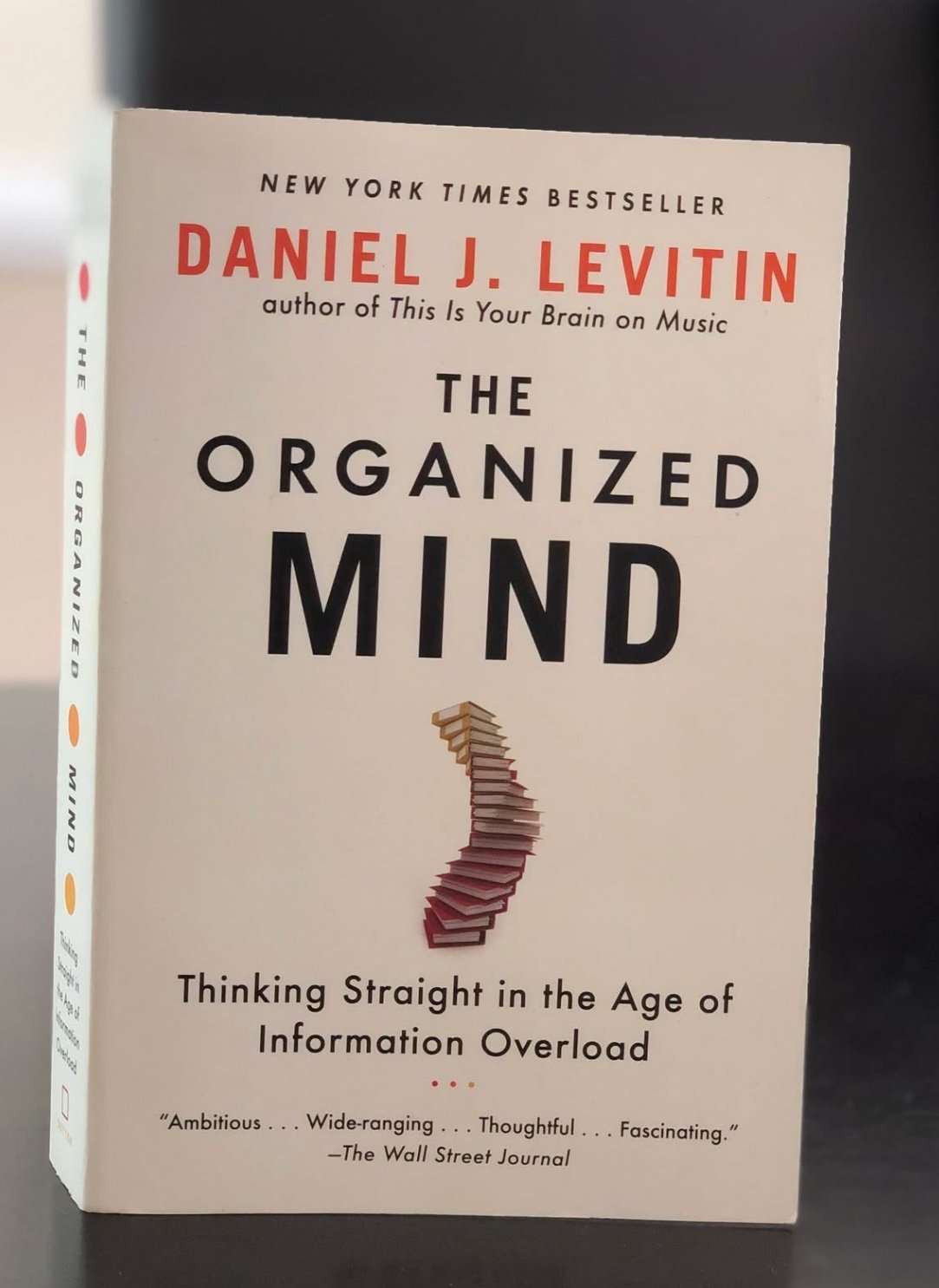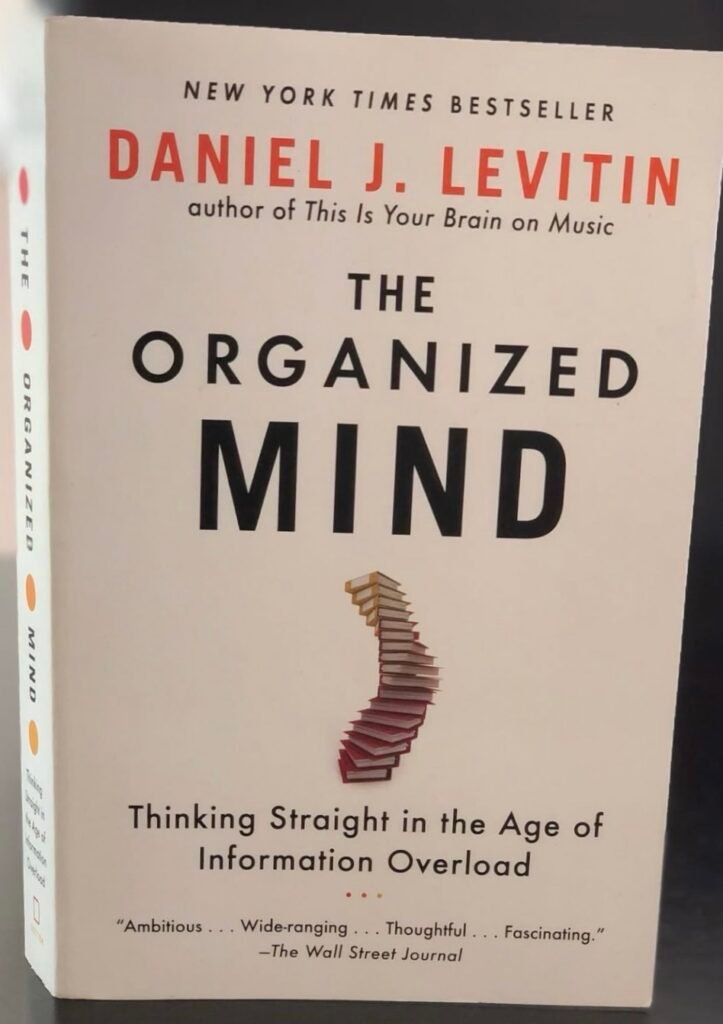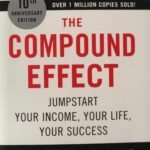

Book Overview
Author: Daniel J. Levitin
Published: 2014
Genre: Psychology, Neuroscience, Self-Help, Cognitive Science
Daniel J. Levitin, a neuroscientist and cognitive psychologist, wrote The Organized Mind to explore how our brains manage information, why we feel so overwhelmed in the modern world, and what science can teach us about structuring our lives for better decision-making, productivity, and peace of mind.
The book bridges neuroscience, psychology, and practical life strategies, showing how we can align the way we organize our lives with how the brain naturally works.
Central Theme
Levitin argues that we live in an “age of information overload”, where the sheer amount of data we process daily far exceeds what our brains evolved to handle. The brain has a limited “cognitive bandwidth”—attention and memory are finite resources. The book explains how we can use external systems, habits, and structures to reduce mental fatigue, improve decision-making, and live more effectively.
Key Ideas & Insights
1. The Brain and Information Overload
Our brains evolved for environments where we processed far less information. Today, we consume more information in a day than our ancestors did in a lifetime. The brain handles tasks in two modes:
Focused Mode: intense concentration, solving problems.
Mind-Wandering Mode: creativity, reflection, subconscious connections. Constant multitasking harms productivity—it increases errors and stress while lowering efficiency.
2. Externalizing Memory
Memory is fallible; we overestimate its reliability.
Levitin recommends offloading information into external systems:
• To-do lists
• Calendars
• Notebooks or apps
By storing information outside, the brain is freed to focus on creativity and problem-solving rather than recall.
3. Decision-Making and the Cost of Choices
Every decision consumes mental energy—called decision fatigue.
• Even trivial choices (e.g., what to wear or eat) can drain willpower.
Strategies:
• Automate routine decisions (uniforms, fixed meal plans).
• Limit unnecessary choices.
• Save mental energy for important, high-stakes decisions.
4. Organizing Information
Levitin explains how information can be structured to align with the brain’s natural categories:
Chunking: breaking information into meaningful groups.
Hierarchies: creating categories and subcategories (like a library system).
Contextual cues: attaching memory to environments or physical anchors.
5. The Role of Attention
Attention is a limited resource that must be managed carefully. Our brains cannot truly multitask; what we call multitasking is actually rapid switching, which creates stress and errors.
Focus is improved by:
• Removing distractions (digital notifications, clutter).
• Scheduling uninterrupted time for deep work.
• Prioritizing tasks according to values, not urgency.
6. The Organized Mind in Everyday Life
Levitin applies neuroscience to different domains of life:
Home: organize possessions in logical places based on use.
Work: manage email, documents, and projects through systems.
Time: prioritize what matters most, use calendars strategically.
Social Life: balance obligations and relationships by setting boundaries.
Health & Sleep: rest is essential for memory consolidation and creativity.
7. The Power of Rest and Daydreaming
Creativity often emerges during mind-wandering (showers, walks, relaxation). Sleep is crucial for consolidating memory and clearing mental “waste.” Rest and downtime are not laziness—they are essential to optimal brain function.
8. The Role of Technology
Technology both helps and overwhelms.
We need to use technology intentionally—as a tool, not as a distraction.
Digital tools should be structured in ways that complement the brain, not exhaust it.
✅ Strengths of the Book
Science-Based: Grounded in neuroscience and psychology, explained in accessible language.
Practical Tips: Offers concrete strategies (lists, routines, organization systems).
Holistic Approach: Covers work, home, health, decision-making, and relationships.
Readable Examples: Uses engaging anecdotes and real-life stories.
Takeaways & Lessons
• Don’t rely solely on memory—create external systems.
• Protect your attention like a precious resource.
• Reduce decision fatigue by simplifying choices.
• Prioritize sleep, rest, and downtime for creativity.
• Align your environment (home, office, digital tools) with how the brain naturally organizes information.
Final Review
The Organized Mind is a thoughtful, science-backed guide to navigating modern life’s chaos. It combines neuroscience with practical life advice, showing that managing information is not just about productivity but about living with less stress and more clarity.
It’s especially valuable for professionals, students, and anyone struggling with digital overwhelm, disorganization, or decision fatigue.

Rating: ★★★★☆ (4.5/5)
Excellent insights, though slightly long and repetitive.







